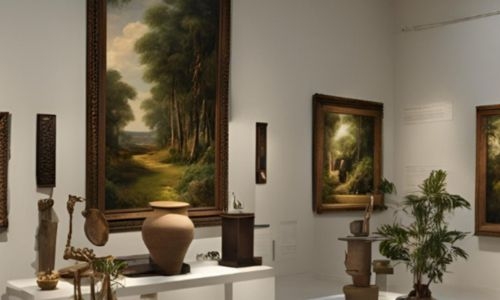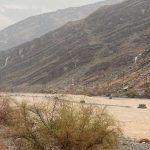Bahrain is set to introduce a groundbreaking tourist attraction centered around the salt-loving mangrove trees that populate its coastal areas. The proposed eco-friendly museum, spanning over 4,485 square meters, has received approval from the Northern Municipal Council. This project, spearheaded by council member Bassem Abu Idrees, aims to highlight the importance of mangroves in maintaining ecological balance. The museum will be Bahrain’s first dedicated to these resilient trees, which are known for their ability to provide protection against tidal storms and act as natural carbon sinks.
Mangroves are essential not only for protecting coastlines and marine life but also for their significant role in absorbing carbon dioxide and combating climate change. By showcasing the various benefits of mangrove ecosystems, including their ability to clean surrounding waters and provide a habitat for diverse wildlife, the museum hopes to raise awareness and educate the public on the importance of preserving these vital trees. In addition to serving as a hub for environmental education and research, the facility will also feature recreational areas for visitors to enjoy.
The proposed museum, located in Salman City block 580, will offer a range of amenities and attractions to appeal to visitors of all ages. In addition to providing a platform for educational programs and research initiatives, the museum will also include a 3D cinema, an exhibition space displaying environmental information and models, an art area for children, a food court, and public facilities. These features are designed to engage visitors in interactive learning experiences and promote a greater understanding of environmental conservation and sustainability.
One of the key highlights of the mangrove museum will be a training center dedicated to cultivating mangrove trees and other eco-friendly plants. This facility will provide opportunities for students and researchers to conduct experiments and learn about the importance of mangroves in protecting coastal ecosystems. By offering hands-on training and educational programs, the museum aims to inspire the next generation of environmentalists and conservationists to take action in preserving the natural environment for future generations.
The development of the mangrove museum represents a significant milestone in Bahrain’s efforts to promote environmental awareness and sustainable tourism. By highlighting the unique ecological benefits of mangrove trees and showcasing their critical role in supporting biodiversity and mitigating climate change, the museum aims to inspire visitors to appreciate and protect these valuable ecosystems. Through innovative exhibits, interactive displays, and educational programs, the museum will serve as a catalyst for positive change and encourage individuals to take action in safeguarding the environment for the benefit of present and future generations.
In conclusion, the establishment of Bahrain’s first mangrove museum signals a new chapter in the country’s commitment to environmental conservation and sustainable development. By creating a dedicated space to showcase the ecological importance of mangrove trees and their role in maintaining healthy ecosystems, the museum aims to foster a greater appreciation for nature and inspire individuals to become stewards of the environment. With its focus on education, research, and community engagement, the museum promises to be a valuable resource for raising awareness about the importance of preserving biodiversity and protecting natural habitats. As Bahrain continues to expand its tourism offerings, the mangrove museum stands out as a unique and innovative attraction that highlights the beauty and significance of these extraordinary salt-loving trees.











